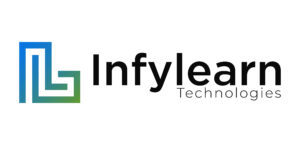
The Digital Native Mindset: Gen Z And Learning
Born roughly between the mid-1990s and early 2010s, Gen Z has grown up in an era saturated with technology, profoundly influencing their learning styles and psychological development. Understanding how this generation learns differently is crucial for educators, employers, and anyone involved in shaping the future.
Elements That Define Gen Z’s Learning Habits And Preferences
Constant Connectivity
Generation Z has never known a world without the internet. Their lives are interwoven with smartphones, social media, and instant access to information. This constant connectivity has fostered a preference for quick, bite-sized content. Traditional learning methods, which often involve lengthy lectures and extensive reading, can feel cumbersome to this generation. Instead, they thrive on microlearning—short, focused segments of information that can be quickly absorbed and applied.
Multitasking Masters
Digital natives are adept at multitasking, often juggling multiple devices and streams of information simultaneously. While this ability can enhance productivity, it also means that Gen Z learners may struggle with deep focus and sustained attention. Educators need to find a balance, integrating engaging, interactive elements into lessons to keep these learners captivated without overwhelming them.
Visual And Interactive Learning
Gen Z’s affinity for visual content is unmistakable. Platforms like YouTube, Instagram, Snapchat, and TikTok dominate their media consumption, highlighting a preference for videos and images over text. Incorporating multimedia into educational materials—videos, infographics, and interactive simulations—can significantly enhance Gen Z’s learning experience. Gamification, where educational content is presented in a game-like format, also resonates well with this generation, making learning more engaging and enjoyable.
Psychological Traits Of Gen Z Learners
Independent And Self-Reliant
Growing up with information at their fingertips, Gen Z learners are often self-reliant. They are used to finding answers on their own, which can be a double-edged sword. While this independence fosters critical thinking and problem-solving skills, it can also lead to frustration when guidance is needed but not immediately available. Educators can support this trait by encouraging self-directed projects while also being readily available to provide support and mentorship.
Value Of Real-World Relevance
Practicality and relevance are paramount for Gen Z. They want to understand how their learning applies to the real world. This generation values education that prepares them for future careers and real-life challenges. Integrating real-world scenarios, case studies, and hands-on experiences into the curriculum can make learning more meaningful and motivating for them.
Mental Health Awareness
Generation Z is more open about mental health issues than previous generations. They value environments that support mental well-being and are cognizant of the impact of stress and anxiety on their performance. Educators and institutions must prioritize mental health, providing resources and fostering a supportive atmosphere to help students manage stress and maintain a healthy balance.
Adapting Education For Generation Z
Personalized Learning
Personalization is key to engaging Gen Z learners. Adaptive learning technologies, which tailor educational content to each student’s pace and style, can be highly effective. By leveraging data analytics, educators can identify individual strengths and weaknesses, providing customized support that helps each student thrive.
Collaborative Learning
Despite their independence, Gen Z values collaboration. They are accustomed to social media and online communities where sharing and cooperation are the norms. Incorporating group projects, peer reviews, and collaborative platforms into the learning process can enhance their experience, fostering teamwork and communication skills.
Lifelong Learning
In a world of rapid technological advancements, continuous learning is essential. Gen Z understands the need for lifelong learning and values opportunities for ongoing education and skill development. Institutions and employers must offer flexible learning pathways, including online courses, workshops, and on-the-job training, to help them stay current and competitive. The main idea is to make sure how to keep them hooked to learning.
Conclusion
Gen Z’s unique characteristics and learning preferences present both challenges and opportunities. By understanding the psychology of digital natives and adapting educational approaches to meet their needs, we can create a more effective and engaging learning environment. Embracing technology, prioritizing mental health, and fostering real-world relevance are key strategies in helping Gen Z learners succeed in their educational journeys and beyond. As we continue to explore and innovate, we have the chance to empower this generation to reach their full potential.
